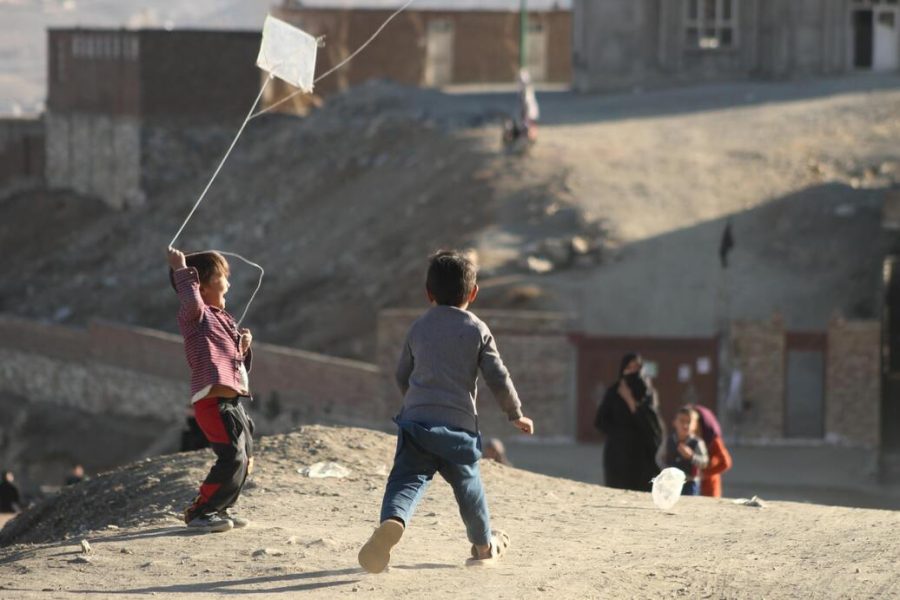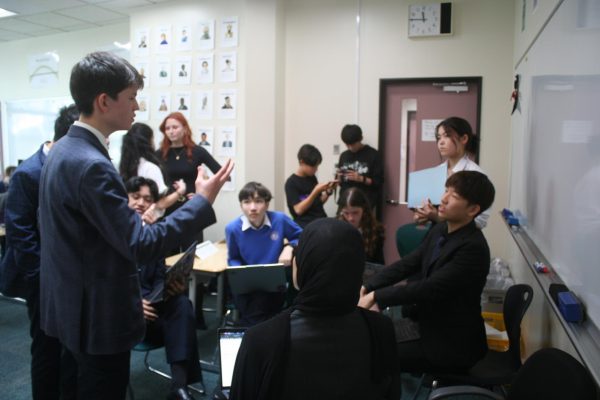Afghanistan: One Year Forward, Three Decades Back
January 15, 2023
On December 20th, the Taliban ordered an indefinite ban on higher education for women across Afghanistan in a statement addressed to all public and private universities.
“You all are informed to implement the mentioned order of suspending education of females until further notice,” the Minister for Higher Education, Neda Mohammad Nadeem, stated in the new decree.
The continued suppression of female rights and mobility in Afghanistan marks the latest chapter in the country’s 42-year history of warfare, instability, and chaos. First rising to prominence on the global geopolitical stage following its takeover of Kabul in 1996, the Taliban, an ultraconservative religious faction, has been a key instigator of domestic and international terror in recent decades.
During its rule throughout the late 1990s, the Islamic fundamentalist group obliterated Afghans’ enshrined rights and employed a number of intimidation tactics, birthing a draconian regime that would ultimately erase women from civil society.
Having worked in conjunction with al-Qaeda—the engineers behind the September 11th attacks—the Taliban’s presence in the Middle Eastern nation remained mostly subdued by the deployment of U.S. troops on Afghan soil from December 2001.
President Biden’s withdrawal of all American troops from Afghanistan last year changed all of that.
The 2021 pullout unexpectedly unleashed a paroxysm of violence with the Taliban at the helm, putting the nation in similar straits to Taliban-led Afghanistan in the 1990s. While the withdrawal of troops and the subsequent conclusion of the Afghanistan War have stopped the spread of bloodshed and destruction, the suffering continues.
Ezharulhaq Fazil, 32, is an Afghan who witnessed his nation’s transition from democracy to despotism. “After the Afghan government collapsed and when the Taliban came to power, it all changed,” he explained, detailing how the nation’s international economic and political ties transformed immediately following the takeover.
With the Taliban having quickly assumed an authoritative, governing role following the U.S. withdrawal, its presence over the nation’s sociopolitical affairs has loomed larger than ever—and international powers have been quick to react.
For one, the U.S. moved swiftly to freeze the assets of the National Reserve of Afghanistan following the fall of Kabul to Taliban forces in August 2021, which Fazil said made his economic situation “frightening.” According to him, all Afghan account holders in his area could only withdraw 400 dollars in total, sending local businesses flailing and many more impoverished.
In the span of two years, Afghanistan’s economic situation has transformed from promising to perilous. Having previously diversified its industrial sectors, living standards benefitted from a period of high economic growth throughout the 2010s. Since 2021, its economy contracted by 20.7%, leading to high food insecurity and an estimated poverty rate of nearly 97% last year.
At the heart of the economic crisis were punitive financial measures imposed by Western democracies and the cessation of humanitarian aid toward the nation’s reconstruction.
Fazil expressed grievances against international sanctions and the freezing of assets, noting how they have sunk the nation into a deeper crisis.
“Getting food and putting food on the table is today a big challenge for Afghans; hopefully, the international community unfreezes the assets of the Afghan people so that they are able to get access to their assets and purchase goods.”
While Afghanistan’s flailing economy tells a narrative of poverty and destitution, its treatment of women tells one of egregious inequality.
Relegated to second-class citizens, women have been barred from occupying all cabinet positions, and they must cover up when traveling outside the home—and there are still more restrictive measures implemented by the new regime. However, the Taliban’s war against women preys not only on Afghan females’ livelihoods, but also on their identities—as workers, wives, and scholars.
Tutku Turgay (26), a refugee researcher working at Sophia University, explained that new policies involve the elimination of nearly all work outside of the home involving females, alongside a mandate for women to be accompanied by their husbands or another male figure when in public.
A measure that perhaps most profoundly pervades Afghan women’s lives with a sense of loss is the Taliban’s systematic exclusion of females from all educational institutions. “They are only surrounded by the four walls in their house and are not able to go to school,” Fazil said. Extrajudicial killings and property destruction await any non-compliant citizens, both measures reminiscent of its 1996 regime.
“Women make up the biggest, and most vulnerable group of people, both in terms of the violence and marginalization they may experience,” Turgay said, while also emphasizing how Afghanistan’s pre-existing culture of sexism and misogyny has exacerbated the crisis.
As the sun sets on another year in Taliban-controlled Afghanistan, Fazil noted that slivers of hope remain in the war-torn land. Having traveled to most Afghan provinces and villages before and after the Taliban’s takeover, Fazil observed a shift in the citizens’ outlook on education.
As Fazil put it, “The parents now want their children and daughters to get educated. If you ask people if they want their children or daughter to get an education, they will definitely say yes. This is an answer that, two years back, was drastically different—they would have said no.” In a nation of lost dreams and rampant conflict, this shift in mindset may signal cracks in the Taliban’s monolithic regime.
“If the Taliban continue like this, they will face protests and challenges. [Afghans] are now educated, literate, and they are aware of their basic human rights,” he also said, noting how broader access to education in the past few years has helped galvanize Afghan citizens to reaffirm their fundamental rights.
Throughout 2022, Afghanistan had rapidly deteriorated into a mirror image of its past self: with the Taliban finding a foothold in governmental and social affairs, it has reinstituted many of its policies present during its 1996 regime. While Afghanistan moves one year forward, it simultaneously moves 20 years back in time.
“Limited women’s rights, suppression of speech, and frozen economic assets—all of these are big challenges that, unfortunately, the Afghan people are faced with today. Today, the people are living in a very dire situation, politically and socially,” Fazil told Hanabi.
Haunted by violent conflict and governed in the fierce clutches of the Taliban, Afghanistan’s economic, political, and educational institutions remain as calcified as ever, its tides of time forever frozen in 1996.




















